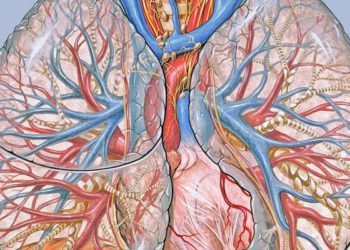Increased salt intake not associated with higher mortality in older adults
1. Based on the results of the Health, Aging, and Body Composition (Health ABC) Study, mortality amongst older adults was not related to increased amounts of self-reported salt intake.
2. Furthermore, there was no association between self-reported higher intake of salt and the development of cardiovascular disease or heart failure.
Evidence Rating Level: 2 (Good)
Study Rundown: Excessive sodium intake has been associated with higher cardiovascular mortality, especially with its link to high blood pressure, structural and functional heart damage, and worsening kidney function. However, there are not enough data on the effect of very low sodium diets (<1500mg/day) compared to general recommended intake (<2300mg/day) on the progression of these aforementioned health problems, especially in older adults for whom adhering to these limitations may be difficult. This study, which examined health problem associations with self-reported quantity of sodium intake, showed that there was no significant relationship between increased Food Frequency Questionnaire (FFQ) noted sodium intake and all-cause mortality. In addition, there was no association between self-reported higher intake of salt and the development of cardiovascular disease or heart failure.
The advantage of this study is the prospective nature of its design, which allows for comorbidities to be appropriately tracked. The major limitation of the study is the self-reporting of dietary salt intake, although it is based off of a well validated questionnaire (FFQ). This does add significant uncertainty. Additionally, the study does not subgroup patients into the severity of any particular illness, which may potentially have different results, and allow for better risk stratification. Another disadvantage of this study compared to others in this category is that the overall sodium intake was lower, which makes comparison of the absolute salt intake in this study compared to others difficult.
Click to read the study, published today in JAMA Internal Medicine
Relevant Reading: Reduced dietary salt for the prevention of cardiovascular disease
In-Depth [prospective cohort]: The data and participants for this study were gathered from the Health, Aging, and Body Composition (Health ABC) Study. The study enrolled older adults, age 70-79, from 1997 to 1998 from Pittsburgh, Pennsylvania and Memphis, Tennessee. Two years after enrollment, the participants completed a Food Frequency Questionnaire (FFQ) to help determine dietary sodium intake. Self reported health history, medications, and previously completed cardiac studies were used to determine the participants’ comorbidities.
In the final analysis, there were 2,642 participants. The adjusted hazard ratio for all-cause mortality for each 1 gram of salt intake was 1.03 (95%CI 0.98 1.09; P=0.27), which was not statistically significant. Similarly, the mortality rates for different categories of sodium consumption, <1500mg/day, 1500-2300mg/day, and >2300mg/day, were, respectively, 33.8%, 30.7%, and 35.2% (P=0.07), which was also not statistically significant. The incidence of cardiovascular disease and heart failure during the 10-year follow-up were also not significantly correlated with sodium intake.
More from this author: Withholding and withdrawing care viewed as different among Asian intensivists, Whole grain consumption associated with decreased all-cause, cardiovascular mortality, Cardiac mortality paradoxically lower during times of national cardiology conferences, Active smoking cessation intervention may provide tangible results [Project CLIQ], Reperfusion therapy may be suboptimal for STEMIs requiring transfers
Image: PD
©2015 2 Minute Medicine, Inc. All rights reserved. No works may be reproduced without expressed written consent from 2 Minute Medicine, Inc. No article should be construed as medical advice and is not intended as such by the authors, editors, staff or by 2 Minute Medicine, Inc.







